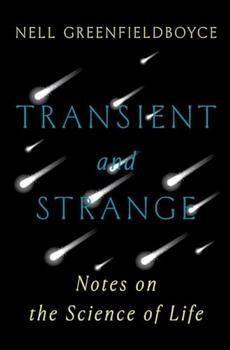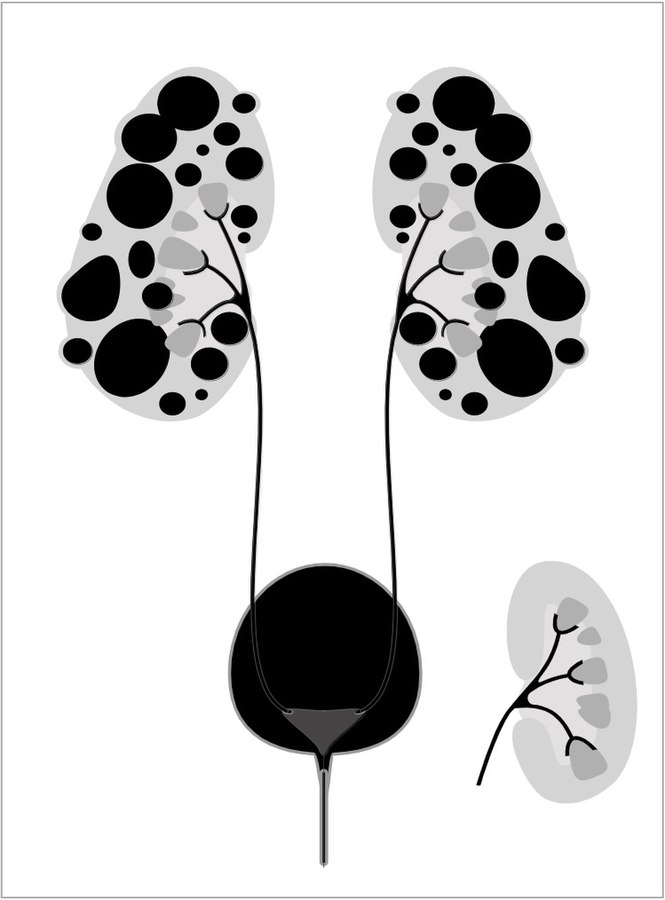Summary | Excerpt | Reviews | Beyond the Book | Read-Alikes | Genres & Themes | Author Bio

Notes on the Science of Life
by Nell GreenfieldboyceThis article relates to Transient and Strange
 In her collection of essays Transient and Strange, Nell Greenfieldboyce shares how her husband's diagnosis of polycystic kidney disease (PKD) affected their lives, especially as they decided to start a family. PKD is a genetic condition involving the growth of high numbers of cysts—fluid-filled sacs—in the kidneys and sometimes other organs. Over time, these cysts can cause kidney enlargement and damage, leading to reduced function and eventually kidney failure.
In her collection of essays Transient and Strange, Nell Greenfieldboyce shares how her husband's diagnosis of polycystic kidney disease (PKD) affected their lives, especially as they decided to start a family. PKD is a genetic condition involving the growth of high numbers of cysts—fluid-filled sacs—in the kidneys and sometimes other organs. Over time, these cysts can cause kidney enlargement and damage, leading to reduced function and eventually kidney failure.
There are two versions of PKD, depending on whether the mutated gene carrying the disease is dominant or recessive. Every person has two copies of each gene—one from each parent. If a trait is dominant, then only one of these versions of the gene needs to carry the trait for the person to have the trait—in this case, the disease. If a trait is recessive, then they must receive a gene carrying the trait from both parents in order to have the disease. The more common form of the disease is the dominant type of PKD, which usually begins to show symptoms in adulthood. Only about 10% of cases are the recessive form, which usually shows symptoms in childhood.
Signs and symptoms of PKD include:
PKD can lead to serious complications, such as brain aneurysms, heart valve abnormalities, colon issues, and pregnancy risks, as well as the previously mentioned kidney failure.
While there is no cure for PKD, treatment options to manage and slow down the progression of the disease have improved in recent decades. Managing high blood pressure is a key element of preventing kidney damage, and doctors now have a greater understanding of this issue. In 1945, Willem Kolff performed the first successful dialysis treatment, removing toxins from the blood of a patient in acute kidney failure, and developments in the '60s and '70s made long term dialysis possible. The first successful human organ transplant was of a kidney in 1954, and in 1983 the first drug to treat organ rejection was developed, greatly increasing transplant success rates.
In 2018, the FDA approved the first-ever drug for the treatment of autosomal dominant PKD. JYNARQUE™, developed by Otsuka Pharmaceuticals, slows down the development of cysts, which in turn delays the loss of kidney function. Genetic counseling is also available for people with the disease who hope to prevent passing it to their children, though options such as in vitro fertilization or fetal screening may be expensive, difficult to access, or emotionally fraught, as Greenfieldboyce shares in Transient and Strange.
Autosomal dominant polycystic kidney disease with normal kidney inset to right of diagram
Illustration by ColnKurtz (CC BY-SA 4.0)
Filed under Medicine, Science and Tech
![]() This article relates to Transient and Strange.
It first ran in the February 7, 2024
issue of BookBrowse Recommends.
This article relates to Transient and Strange.
It first ran in the February 7, 2024
issue of BookBrowse Recommends.
Outside of a dog, a book is man's best friend. Inside of a dog it's too dark to read.
Click Here to find out who said this, as well as discovering other famous literary quotes!
Your guide toexceptional books
BookBrowse seeks out and recommends the best in contemporary fiction and nonfiction—books that not only engage and entertain but also deepen our understanding of ourselves and the world around us.